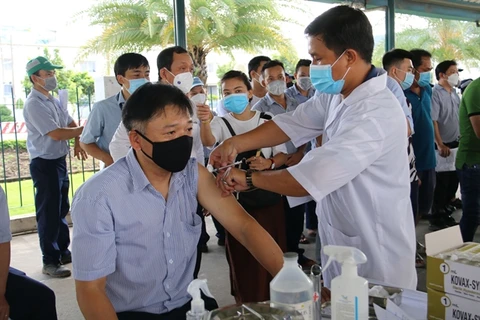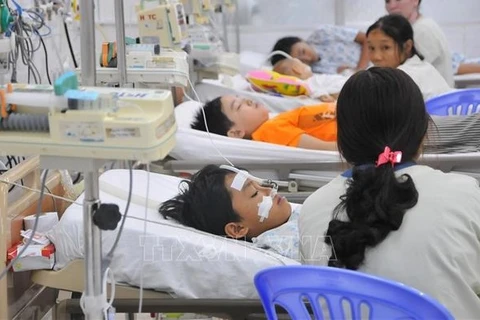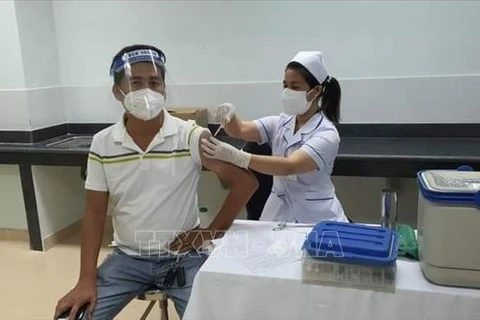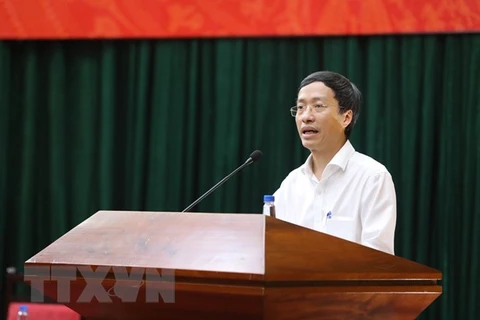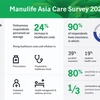The Ministry of Health has proposed continuing to classify COVID-19 as a Group A infectious disease, and not an endemic one. The nation should continue on with flexible and appropriate measures to curb the disease.
According to the Ministry of Health, the World Health Organization (WHO) has maintained its warning of COVID-19 as a global pandemic. In Vietnam, the number of infections and deaths is still recorded and has risen in recent times.
Two scenarios to respond to COVID-19 in the new situation
The Ministry of Health has submitted a report to the Government on measures to prevent and control the COVID-19 pandemic in the new situation. The ministry proposes to continue to consider COVID-19 as a group A infectious disease and has not announced the end of COVID-19 pandemic.
The ministry explained that the transfer of infectious disease classification from group A to group B for COVID-19 has some challenges. For example, according to the Law on Prevention and Control of Infectious Diseases 2007 and related guidance documents, many different regulations require adjustment for group A and group B infectious diseases. These include surveillance at border gates and in the community, entry and exit control in pandemic-affected areas, and infection prevention at medical examination and treatment establishments. Also included are medical isolation, free treatment, hygiene guarantees and prevention of infectious diseases, as well as use of vaccines in emergency situations.
In addition, if COVID-19 is moved to group B, there will be a drop in the adherence to protocols for authorities at all levels, organisations, businesses and people. People will not be vigilant, ignoring the pandemic danger, and not taking proactive measures to prevent it.
Another reason is that if the pandemic has a new, more dangerous variant, causing an increase in severe cases or deaths, there is a risk of a strong outbreak on a large scale, beyond the health system’s capacity. If COVID-19 is downgraded to group B it allows for a reduced response from medical and social forces, leaving society at risk.
The health ministry therefore will not change the classification of COVID-19 disease from group A infectious disease to group B infectious disease, which is a less dangerous classification, at present. Pandemic prevention and control measures are flexible and gradually moving towards the 'new normal'.
The ministry has developed a plan with two scenarios to ensure health work in response to COVID-19 in 2022-2023 on the basis of WHO's strategic plan for COVID-19 preparedness and response.
Scenario 1: The virus strain continues to evolve, but the number of severe cases and deaths will be reduced thanks to the community’s immunity. For this situation, COVID-19 prevention and control measures will be gradually reduced similar to those for group B infectious diseases to enable people to safely and flexibly adapt to the new normal situation.
Scenario 2: A new, more dangerous variant appears that is likely to reduce the effectiveness of the vaccine or immunity, causing an increase in severe cases or deaths and putting a strain on the medical system. For this situation, measures to prevent and control COVID-19 will be consolidated and strictly implemented for group A infectious disease to limit the number of cases and deaths.
Vietnam has now basically met the necessary conditions for the transition from pandemic prevention to sustainable management. However, it is still necessary to always stay alert to new variants of the virus, prepare to respond in any circumstances.
In the face of the complicated developments of COVID-19 in many countries, including Vietnam, maintaining the current announcement of COVID-19 as a pandemic is important to gain the due attention from the public./.

